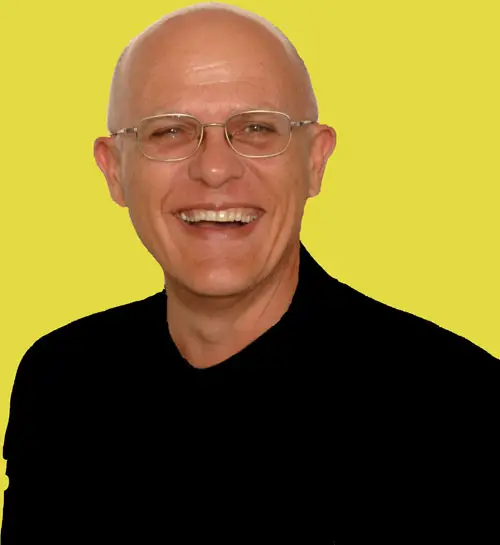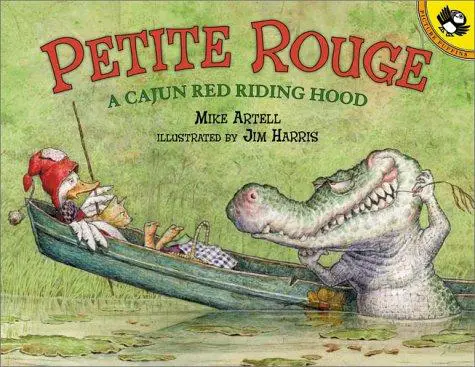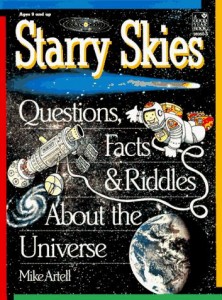 Mike Artell is an American award-winning author, illustrator and musician from Covington, Louisiana. In this interview, Mike talks about his books, his love for public speaking, reading and writing.
Mike Artell is an American award-winning author, illustrator and musician from Covington, Louisiana. In this interview, Mike talks about his books, his love for public speaking, reading and writing.
Voicu Mihnea Simandan: You have been a storyteller for most of your life. How has your writing evolved over time?
Mike Artell: When I first began to write and illustrate books for a living I really had no focus. I wrote/illustrated fiction, non-fiction, how-to books, professional books for teachers, books for parents, etc. etc. These days I focus mainly on non-fiction and specifically how-to and humor/cartooning books.
VMS: Where did the ideas for the Petite Rouge – A Cajun Red Riding Hood (2003) come from?
MK: I was born and raised in Southern Louisiana which is the home of the Cajun people and my mother and father grew up in “Cajun country.” When I was growing up I heard a lot of funny Cajun stories and it was only natural to take a well-known story like Little Red Riding Hood and rewrite it with a Cajun twist.
VMS: Illustrations are a very important factor in any children’s books. Petite Rouge was beautifully illustrated by Jim Harris. Having in mind that you’re also an illustrator, what was your work relationship with the Jim?
MK: Jim and I have never met though we have talked on the phone and exchanged emails. I could have illustrated Petite Rouge myself but I felt that my style was much too “cartoony” for the book. I asked the publisher to get another illustrator to create the images and they picked Jim. I could not have been more pleased. He’s immensely talented and his illustrations were spot-on.
VMS: You have started as a ‘salesman’ but have moved on to write children’s books. How did you find the transition?
MK: Having a background in sales and marketing has given me a huge advantage over many other writers and illustrators. I understand how to determine market needs, how to listen to my customer base and how to create products that people want to purchase. Too often, writers simply want to write what THEY want to write and they’re surprised when they can’t find a market for their work. They think their books don’t get published because their writing isn’t good enough. So they try to write better. More often than not it isn’t the quality of the writing that prevents a book from being published, it’s the fact that the book doesn’t address a market need. People write books about the cute things their dogs or kids/grandkids do and they expect that the book buying public will want to trade their money to read those stories. That’s not going to happen. Almost EVERYONE has a cute pet or a clever child or grandchild. In order for a book to be published by a major publisher it has to be unique as well as have universal appeal. That’s a tricky combination but it’s what makes a book attractive to large numbers of people.
VMS: You’ve also branched out from children’s books and have written some well-received non-fiction books. I have in mind Starry Skies (1997). Do you employ similar skills when writing in different genres?
MK: Writing is communication. Sometimes you have deep, meaningful conversations with people. Other times you have exciting or interesting information to share with them. On other occasions you simply want to laugh with people. Writing is like that. Regardless of the genre, your communication needs to be efficient (don’t bore people) and effective (say something that will interest THEM).
 VMS: Some people believe that children no longer read and, with the availability of affordable e-readers, many believe that, sooner or later, children will no longer want to hold books in their hands. Please comment.
VMS: Some people believe that children no longer read and, with the availability of affordable e-readers, many believe that, sooner or later, children will no longer want to hold books in their hands. Please comment.
MK: Let me ask you a question… Does it make you sad to know that kids today don’t want to read from clay tablets or papyrus scrolls? Of course not. Tablets and scrolls were the technology of the day, but now they’re obsolete. Come on, people… get over it! Information and entertainment are rapidly going digital. And some percentage of what’s published will continue to be the traditional “ink on paper” books for a long time. The printed word did not kill storytelling. Motion pictures and radio did not kill the printed word. Television did not kill motion pictures and radio. DVDs did not kill motion pictures. E-readers will not kill books, but e-readers will certainly be the medium of choice for the future. And please don’t tell me that children no longer read. They most certainly do – in fact I believe they read more than ever. However if your idea of “reading” is sitting quietly in a chair with a thick novel, then you have simply defined “reading” too narrowly. Though attitudes are changing, there’s still a huge bias toward novels and chapter books as “real” books and non-fiction, how-to, magazines, graphic novels, jokes/riddle/tongue twister books, the backs of cereal boxes, etc. as not real writing and hence not material for “real” reading. That’s nonsense. Once again, it’s all about communication. If you’re communicating the written word – regardless of the medium – and the reader “gets” what you’re trying to say, then that’s “real” writing and “real” reading. And kids are doing a LOT of it.
VMS: You are very active online and maintain two excellent websites, one for your ‘author persona’ and one for you ‘corporate persona’. How important is it for writers these days to be “out there” on the Internet, interacting with their fans?
MK: If someone does NOT have a presence on the Web, I’d like to know how they expect anyone but their circle of friends to know anything about what they’re doing. If you’re an aspiring writer or illustrator and you do not have a web presence you had better lower your expectations. There is no excuse for not having a web site. There are many free web hosting sites (Google “free web hosting”) and if you can use Microsoft Word, you can build a simple web site. Again – for FREE. Start a blog (for free). Have a Facebook page (for free). Do SOMETHING to let people know you’re out there.
VMS: You’re constantly visiting schools and giving motivational speeches throughout the United States. What were some of the highlights of your most recent visits?
MK: I’ve had some incredible speaking gigs. I’ve spoken at the American Library in Paris, at schools in Japan and an international school in Germany. I’ve visited hundreds of schools in the U.S. and I’ve done Skype calls with schools in Zambia, Honduras and Pakistan. I’ve even spoken at youth detention centers to teenagers who were incarcerated. It would be hard to pick the most memorable visit.
 VMS: Do you still read children’s books?
VMS: Do you still read children’s books?
MK: Sometimes. My wife and I have 5 grandchildren, all 5 years old and younger (at this writing). They’ve heard me read most of my books so when I read to them, I usually read books written by other authors. My wife is a school librarian so she knows how to pick good books for us to read to them.
VMS: What book are you working on right now?
MK: A book on how to draw jets, helicopters, etc. Also a book on animal skulls. I just finished doing audio versions of several of my books (available on Audible.com) and later this month I’m going into the studio to do a cartooning video on how to draw creatures of the wetlands (alligators, snakes, birds, frogs, etc.). I have a couple of dozen “rough” books in the queue.
VMS: What is your writing routine?
MK: I don’t have one. No kidding. I really don’t have one. I might work on a book for a few hours, then stop and take a walk. Then I’ll come back and send emails to schools that might want me to visit. Then I’ll talk with some conference people about speaking at their conference. Then I might play my guitar or keyboard for a while. If I’m traveling, naturally that takes up the entire day – although I may do a little writing in my hotel room at night. I do plan my days in advance but each day is different. I may spend an entire day on marketing or I may spend half a day learning how to use a new drawing program. I’m an early riser (about 5:45 AM) so my days are pretty long – and that gives me lots of time to get things done.
VMS: What advice would you give to aspiring writers?
MK: Most writers won’t like this advice, but here goes: If you want to write, then feel free to write and write and write. However, if you want someone to give you MONEY for what you write, then you’d better provide people with something that is more valuable to them than the money in their pocket. Note: I said that what you provide has to be more valuable TO THEM than the money in their pocket. What you consider “valuable” may not be what the potential buyer/reader thinks is valuable. Write the following words very large on a piece of paper and put them where you’ll see them often: WRITING IS A BUSINESS. Publishers don’t publish books because they’re well written or because the writer is a nice person. A publisher will publish a book only if that publisher believes that it can sell a lot of copies of that book. That’s what publishers care about. When a publisher reads a manuscript, the question he/she asks is, “Can I sell a lot of copies of this?” If the answer is, “yes” then the book will be published – regardless of how well it’s written, who wrote it, what the subject matter is, etc. If the answer is, “no” then from a business point of view, that’s the end of the manuscript. And that’s the truth.
VMS: Thank you for your time.
MK: You’re very welcome. Best of luck to all those aspiring writers out there. Don’t give up!
Now, watch this video and draw a cartoon horse together with Mike Artell:

